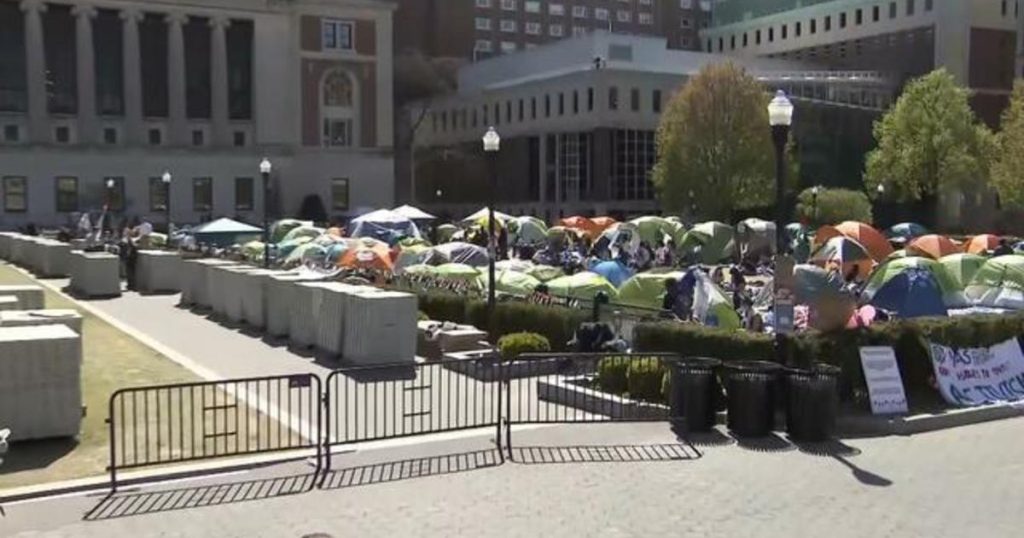As protests over the Israel-Hamas war continue to grow on college campuses across the country, tensions are running high at Columbia University in New York City. The protests started with an encampment of students at Columbia, who have been demanding that the university cut ties with Israeli institutions and divest from companies that support Israel. Negotiations between students and administrators have since stalled, with no resolution in sight.
The protests at Columbia University have drawn attention to the broader issue of universities’ investments and relationships with Israel. Students are calling for their institutions to take a stand against what they see as the Israeli occupation of Palestinian territories and the ongoing violence in Gaza. They believe that universities should not be supporting institutions or companies that they feel are complicit in human rights abuses.
The protests at Columbia have also sparked discussions about academic freedom and the role of universities in political and social issues. Some students and faculty members support the protesters, arguing that universities have a moral obligation to divest from companies that profit from violence and oppression. Others, however, worry that demands to cut ties with Israel could infringe on academic freedom and free speech on campus.
As the protests continue, tensions are escalating between students and administrators at Columbia University. The university has not yet agreed to the protesters’ demands, and negotiations have come to a standstill. The situation is indicative of broader divisions within the university community over how to address the Israel-Hamas conflict and the role of universities in activism and social justice movements.
The protests at Columbia are part of a larger wave of student activism on college campuses across the country. Students are increasingly using their voices and platforms to advocate for social and political change, including issues related to racial justice, climate change, and human rights. The protests over the Israel-Hamas war reflect a growing awareness and engagement among young people on pressing global issues.
Overall, the protests at Columbia University highlight the complex and contentious debates surrounding the Israel-Hamas conflict and universities’ roles in addressing social justice issues. As students continue to push for change and demand accountability from their institutions, the tensions and divisions within the university community are likely to persist. It remains to be seen how universities will respond to these calls for action and how they will navigate the complexities of balancing academic freedom, political activism, and social responsibility in an increasingly polarized world.


